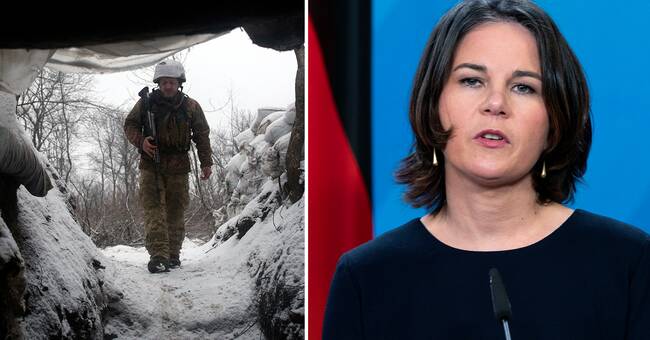Germany refers to an old principle that the country has about not sending German-made weapons to hotbeds of unrest.
According to a spokesman for the German government, it is impossible to assess how the current - and tense - situation in Ukraine will turn out.
"We have that principle, regardless of whether the weapons come from Germany or from third parties," he told The Wall Street Journal.
Did not give up
It was after the US Secretary of State Antony Blinken and Russia's ditto Sergei Lavrov's meeting on Friday in Geneva, Switzerland, that the three Baltic states of Estonia, Latvia and Lithuania - all formerly part of the Soviet Union - announced that robots would be sent to Ukraine to strengthen Ukrainian airspace. and armor.
Estonia has for several weeks been trying to persuade Germany to give permission to send German-made weapons to Ukraine and has not yet given up hope of getting a yes.
- Hopefully we will get permission from Germany.
Estonia has shown that we practically want to help Ukraine in every way we can, says Kristo Enn Vaga, who is an adviser to Estonia's Minister of Defense, in The Wall Street Journal article.
But when Germany's newly appointed foreign minister Annalena Baerbock visited Ukraine earlier this week, she resisted.
- Our restrictive attitude is well known and has deep historical roots, she said then.
Ukraine disappointed
Ukraine considers that Germany's position on the issue does not coincide with the current situation, where the pressured country wants a united front behind it.
"
German partners must stop undermining the agreement with such statements and actions, thereby encouraging (Russian President) Vladimir Putin to launch another attack on Ukraine
," Ukrainian Foreign Minister Dmytro Kuleba wrote on social media.
Ukraine's ambassador in Berlin is lobbying hard for Germany to change and help Ukraine more actively, for example by contributing equipment to Ukrainian volunteers.
- The seriousness of the situation requires that the "traffic light government" (a nickname that refers to the colors of the coalition parties) immediately rethink and turn on the issue of arms deliveries, says Ambassador Andrij Melnyk to the newspaper Handelsblatt.

